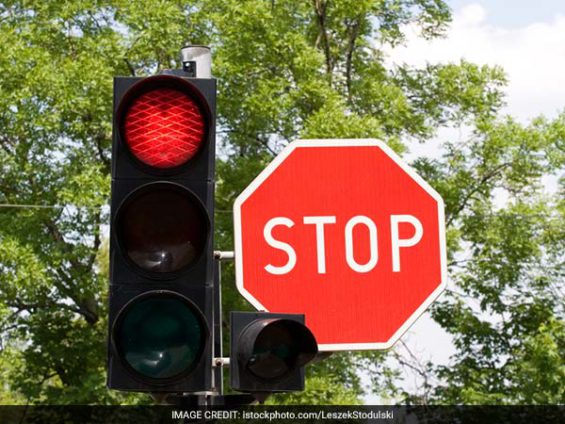
Audio By Carbonatix
The Managing Director of LADA Institute, Mark Ofori-Amanfo, says a strengthened legal framework, enhanced awareness and public education will lead to consistent enforcement and compliance.
He said this would also reduce road traffic fatalities for children, whom “we hold dear as Ghana’s future leaders.”
Mr Ofori-Amanfo was speaking at a Stakeholder’s Advocacy Workshop organised by LADA Institute in partnership with the National Road Safety Authority on the use of child restraint equipment and seatbelts for children.
The workshop forms part of LADA Institute’s efforts at providing legislative and advocacy support for the amendment and strengthening of the legislative framework for child restraint and child seat belt usage, as a way of contributing to an improved road safety legal and policy environment in Ghana.
This advocacy workshop forms part of LADA Institute’s efforts at supporting the amendment and strengthening of the legislative framework for mandatory child restraint and child seat belt usage, as a way of contributing to an improved road safety legal and policy environment in Ghana.
He called on stakeholders to always buckle up the Child because it was the Child’s Right to safety.
”Beyond legislation, however, LADA Institute sought to improve behavioural change and increase public interest for the use of age-appropriate child restraints and seat belts for children in Ghana,” Mr Ofori-Amanfo added.
He said it was to strengthen the existing legal and policy framework, adopt and encourage and implement the mandatory use of child restraints and seat belts for children in Ghana.
The Managing Director said Road safety was a complex and multi-dimensional development issue because it had implications for different facets of every country’s development.
He said more importantly, road safety was a human rights question and the safety of children on the roads was a child’s rights issue linked to health and survival, education, protection, and participation.
“The importance of addressing child road safety is borne out of the worrying statistics across the globe,” he added.
He said the WHO Global Status Report on Road Safety 2018, highlights that road traffic injuries were now the leading killer of people aged 5-29 years and the situation was not much different in Ghana.
The Managing Director said Children were dying on the roads, and “we need to begin to take all reasonable steps to protect their right to life.”
He said research had shown that there was a linkage between Road Traffic Crash fatalities involving child passengers and the pattern of child restraint usage, and child seating behaviour in general.
Mr Ofori-Amanfo said there had been a growing practice where parents, or guardians, drive without any form of restraint to child occupants.
More often, one can observe some parents driving with children leaping about in the back seat; babies and toddlers being held in the arms of other adults in the front or back seat; or parents holding a child in their arms while driving.
“Indeed, when it comes to safety on our roads, good practice or evidence-based interventions exist and we must aim to adopt, implement and monitor the uptake of these solutions and such practices include the use of appropriate child restraints and seat belts backed by a well-functioning policy and legal environment,” she added.
He said the Ministry of Transport and the National Road Safety Authority, as well as other agencies like the DVLA, were leading efforts to review and amend the existing Road Traffic legislation to eliminate inconsistencies and tighten enforcement.
“For LADA Institute, our interest is to ensure that all the issues of vehicular child safety are considered in the legislative amendment process,” he added.
He said beyond the legislative amendment processes, however, LADA Institute sought to improve behavioural change and increase public interest in the use of age-appropriate child restraints and seat belts for children in Ghana.
He expressed the hope that with the advocacy, the government would receive support for the strengthening of legislation and standards for mandatory seat belts and child restraint use, thereby increasing compliance and enforcement.
Latest Stories
-
Police arrest suspect for unlawful possession and attempted sale of firearm
57 minutes -
3 arrested in connection with Tema robberies
1 hour -
Your mouth on weed is nothing to smile about
1 hour -
25% university fees hike, what was the plan all along? — Kristy Sakyi queries
3 hours -
Some OMCs reduce fuel prices; petrol going for GH¢10.86, diesel GH¢11.96
3 hours -
Trump says health is ‘perfect’ amid ageing concerns
4 hours -
China’s BYD set to overtake Tesla as world’s top EV seller
4 hours -
Joy FM’s iconic 90’s Jam returns tonight: Bigger, better, and packed with nostalgia
4 hours -
Uproar as UG fees skyrocket by over 25% for 2025/2026 academic year
5 hours -
Japan PM joins fight for more female toilets in parliament
6 hours -
Ga Mantse declares war on fishing industry child labour
7 hours -
Adom FM’s ‘Strictly Highlife’ lights up La Palm with rhythm and nostalgia in unforgettable experience
8 hours -
OMCs slash fuel prices as cedi gains
9 hours -
Around 40 dead in Swiss ski resort bar fire, police say
10 hours -
AFCON 2025: Aubameyang and Nsue make history among oldest goalscorers
11 hours

